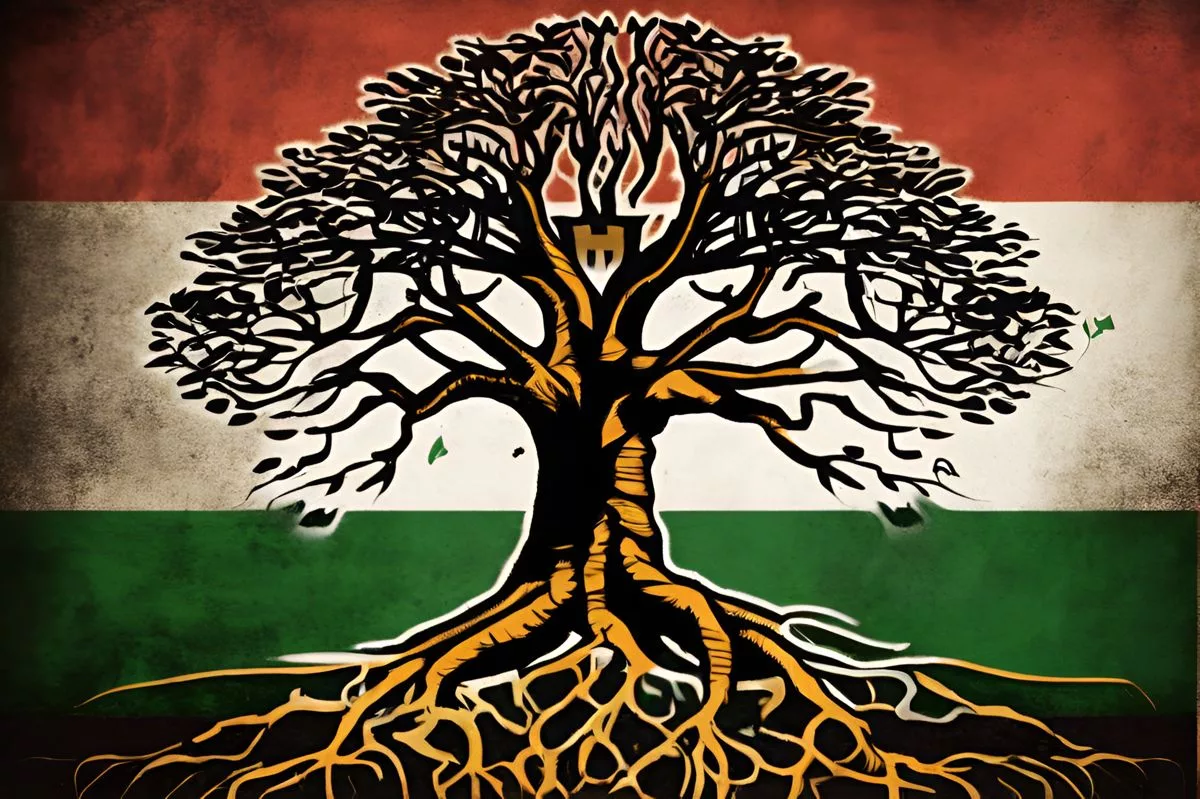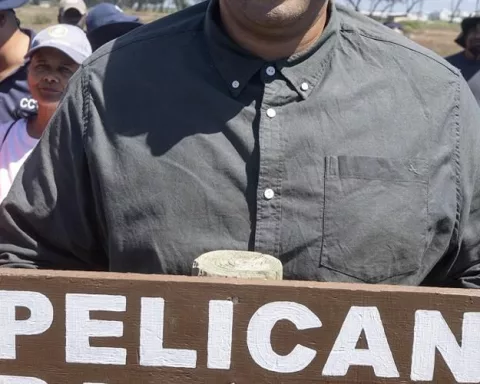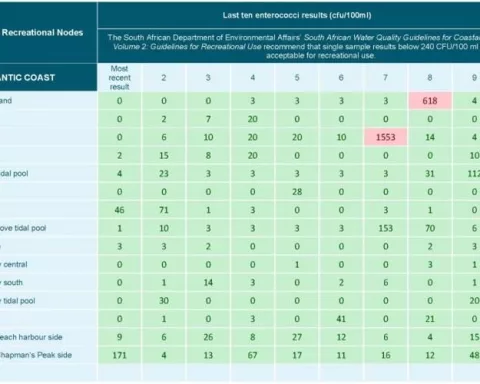South Africa has launched 19 Community Forestry Agreements (CFAs), marking a significant stride towards community empowerment and sustainable forestry practices. The agreements exemplify the government’s pledge to inclusive growth and efforts to deter plantation crimes such as timber theft. The government will provide continued support through a post-settlement support program to guarantee successful community ownership and management of the plantations. The CFAs lay the groundwork for new market opportunities while catering to the sector’s additional fiber requirements and are aligned with the Forestry Sector Masterplan.
South Africa has inaugurated 19 Community Forestry Agreements (CFAs), marking a significant stride towards community empowerment and sustainable forestry practices. The CFAs exemplify the government’s pledge to inclusive growth and efforts to deter plantation crimes such as unlawful occupation or timber theft. Importantly, they also lay the groundwork to unveil new market opportunities while catering to the sector’s additional fiber requirements. The government will provide continued support through a post-settlement support program encompassing capacity building, business support, technical and regulatory support to guarantee successful community ownership and management of the plantations.
Unveiling Community Forestry Agreements
In a ceremony teeming with noteworthy figures and traditional council leaders, South Africa demonstrated its unwavering dedication to both environmental preservation and local empowerment. The occasion witnessed the inauguration of 19 Community Forestry Agreements (CFAs), which are a milestone in South African environmental development. The hosting city, Butterworth, became the backdrop for the official transfer of the Mission, Nqamakwe, and Mgomanzi plantations to the Tobotshane, Amahlubi, and Amazizi traditional councils.
The ceremony embodies the essence of community involvement and partnership. Inkosi Bikitsha, Inkosi Nhyila, and Inkosi Silinga, together with their respective traditional councils, played a crucial role in the formulation and finalization of the community forestry agreements. Constructed through an array of consultations, these agreements aim to optimize benefits while ensuring the enduring prosperity and sustainability of the plantations.
This initiative underpins the pivotal role traditional leadership has in spurring governmental initiatives, contributing to the success of projects and reiterating the philosophy of Siyabulela, a Xhosa term symbolizing gratitude.
South Africa’s Forestry Sector and the Forestry Sector Masterplan
The forestry sector in South Africa administers about 1.2 million hectares, adding 1% to the national gross domestic product every year and providing employment to approximately 149,100 individuals. However, the substantial hurdle lies in the transformation of the industry. The country’s past has left the ownership of forestry scattered and regulated under diverse arrangements. State-owned forestry plantations are grappling with numerous difficulties, from unlawful occupation to the struggle of accessing new markets for their products.
To combat these challenges, the Department of Forestry, Fisheries and Environment (DFFE) formulated the Forestry Sector Masterplan, an extensive strategy approved in November 2020. This blueprint serves as an advisory guideline for the expansion, investment, and transformation of the forestry sector. It underscores the crucial role of transferring plantation resources to fortify communities and stimulate sectoral growth.
With six primary focus areas, the masterplan strives to restore all forestry areas to production, empower communities, manage assets, and secure a significant role in the market. Tackling these key areas will support the DFFE in transitioning plantations to communities, in line with the National Forests Act of 1998.
The Impact of Community Forestry Agreements
The community forestry agreements mark a significant stride towards community empowerment and sustainable forestry practices. They exemplify the government’s pledge to inclusive growth and efforts to deter plantation crimes such as unlawful occupation or timber theft. Importantly, they also lay the groundwork to unveil new market opportunities while catering to the sector’s additional fibre requirements.
The masterplan aims to channel R24.9 billion into the sector, generate additional employment opportunities, and enhance the proportion of Small and Medium Enterprises (SME) procurement in the industry. It also seeks to attract investment by issuing a call for proposals that support owner-growers and motivate commercial players to collaborate with communities by presenting opportunities throughout the value chain.
For sustainable management and to reap benefits from the forestry resources, communities need to abide by several prerequisites. These include sustainably managing the community forests, establishing operational companies, adhering to transparent procurement processes, and ensuring equitable revenue distribution among the community.
Continued Government Support and the Future of Community Forestry Agreements
Governmental support will persist even after the launch, with an inclusive post-settlement support programme encompassing capacity building, business support, technical and regulatory support to guarantee successful community ownership and management of the plantations. This includes assistance in marketing, financing, and connecting beneficiaries with strategic partners.
The realization of this initiative marks a significant stride in addressing the forestry sector’s challenges, fostering cooperative efforts, and ensuring its sustainable growth. It echoes the sentiments of the late environmental activist Wangari Maathai, the first African woman to win the Nobel Peace Prize, who opined, “When we plant trees we plant the seeds of peace and hope.”
The plantation transfers align with the Commercial Forestry Sector Masterplan‘s objectives, presenting a glimmer of hope for industry and labour representatives to persist in their support for these communities. This ensures they flourish and contribute to the country’s progress. Although the process will demand patience, much like a tree anchoring its roots into the ground, the benefits the CFAs offer to their communities will manifest over time.
The successful inauguration of the Community Forestry Agreements attests to the collective commitment towards empowering our communities. It is an initiative realised through the dedication and efforts of key role players and stakeholders, promising a brighter and more inclusive future for South Africa’s forestry sector.
What are Community Forestry Agreements (CFAs)?
Community Forestry Agreements (CFAs) are agreements between communities and the government for the transfer of ownership and management of state-owned forestry plantations to the community. The aim of CFAs is to empower communities and promote sustainable forestry practices while deterring plantation crimes such as timber theft.
How many Community Forestry Agreements (CFAs) has South Africa launched?
South Africa has launched 19 Community Forestry Agreements (CFAs), marking a significant stride towards community empowerment and sustainable forestry practices.
What is the Forestry Sector Masterplan?
The Forestry Sector Masterplan is an extensive strategy approved by the Department of Forestry, Fisheries and Environment (DFFE) in November 2020. It serves as an advisory guideline for the expansion, investment, and transformation of the forestry sector. It underscores the crucial role of transferring plantation resources to fortify communities and stimulate sectoral growth.
What is the impact of Community Forestry Agreements (CFAs)?
Community Forestry Agreements (CFAs) mark a significant stride towards community empowerment and sustainable forestry practices. They lay the groundwork to unveil new market opportunities while catering to the sector’s additional fibre requirements. The Forestry Sector Masterplan aims to channel R24.9 billion into the sector, generate additional employment opportunities, and enhance the proportion of Small and Medium Enterprises (SME) procurement in the industry.
What are the prerequisites for sustainable management of community forests?
To sustainably manage community forests, communities need to establish operational companies, adhere to transparent procurement processes, ensure equitable revenue distribution among the community, and sustainably manage the community forests.
What support will the government provide after the launch of Community Forestry Agreements (CFAs)?
The government will provide continued support through a post-settlement support program encompassing capacity building, business support, technical and regulatory support to guarantee successful community ownership and management of the plantations. This includes assistance in marketing, financing, and connecting beneficiaries with strategic partners.












